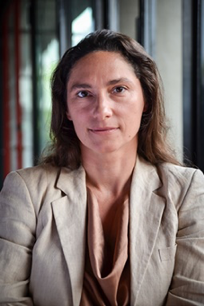Mechanical Engineering Department and Institute of Complex Molecular Systems
Events | Mechanical Engineering
Mechanical Engineering Department and Institute of Complex Molecular Systems
June 3, 2019 8:30 AM

Speaker
Regina Luttge
Location
ESB 1001
Type
Seminar
Research focus – Regina investigates and develops microsystems for medicine and biology with integrated bio-inspired functionality mediated by shrinking structural dimensions and controlling material properties at the nanoscale applying emerging and established micro-nanofabrication methods.
Bio - Regina studied Applied Sciences in Germany and worked as an engineering researcher at Institut für Mikrotechnik in Mainz for nearly five years prior to starting her PhD studies in Microsystems Technologies at Imperial College, London, in 1999. In 2003 she received her PhD from the University of London on the development of fabrication technology for micro-optical scanners. Switching her research interest to microfluidics applications, Luttge went on to work at the University of Twente’s MESA+ Institute for Nanotechnology, The Netherlands. Initially as a senior scientist and later, when she received a Veni award by The Netherlands Organisation for Scientific Research (NWO) as an Assistant Professor. She received her second personal award (ERC Starting grant) by the European Research Council in 2011, which empowered her to set up her own research line in microsystems for medicine and biology as a PI at University of Twente. In 2013, she moved her research line to the just started Microsystems group at TU/e, where she was also appointed Associate Professor in the same year. Since 2018, she continuous her research activities within in the Microsystems section as Chair of Neuro-Nanoscale Engineering. Currently, she is the leader of CONNECT, a 5 years EU funded project conducting research to better understand Parkinson’s disease by means of Organ on a Chip (OoC) technology. Besides education and research, Regina is passionate about spinning off new businesses, encouraging her students at all levels of their educational program to take part in the innovation chain.
Abstract – in this presentation I will provide a brief overview about the OoC program in the Netherlands with a focus on the activities at the Dutch human Organ and Disease Modelling technology (hDMT) Institute. Further, I will give an overview about the research topics at the Microsystems section at Eindhoven University of Technology. Subsequently, I introduce my own research on OoC technology. Going into more fundamental details of defining the design criteria for OOCs, I will discuss our contribution to the larger scope of brain research and specifically in the context of neurodegenerative diseases. Specifically, my team and I combine microfluidics with tissue engineering to create a realistic in vitro model of the brain, which can provide insights into both normal and disease-state function. We focus on the rational design of miniaturized 3D culture experiments applying induced pluripotent stem cell-derived neurons and the generation of artificial micro-environments of physiological relevance, i.e. OoCs. We develop miniaturized culture systems to control neuronal cell network architecture in 3D. These l-sized cell culture systems are designed to provide advanced cues for the differentiation process of neuronal cells, including neurons and glial cells, and maintain physiological conditions. What’s more, we integrate methods for the analytical interrogation of such designed neuronal cell network systems to collect information of the systems’ performance correlating with the functions of individual cells within the system. I will share results of two novel OoC technologies that we consider the workhorses for advanced 3D cell-cell communication studies in my research line: vertically integrated microbioreactors and -Sieve platforms. I will address micro- and nanofabrication challenges and preliminary results of these approaches potentially valuable to neuroscientists.